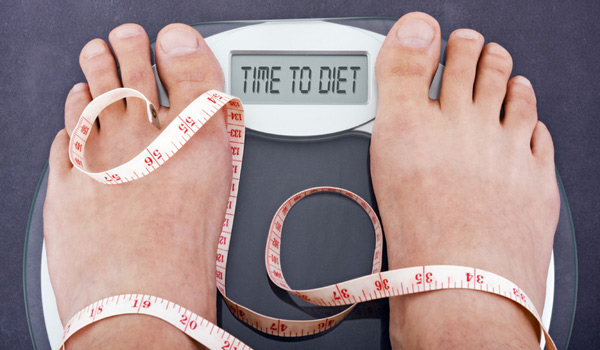Is Obesity a Disease? Doctors Debate

Obesity puts people at risk for a whole host of conditions, including Type 2 diabetes, high blood pressure and sleep problems. But is obesity itself a disease?
Doctors are divided on the issue. Some say obesity is indeed a disease, with causes beyond eating too much and exercising too little, and consequences that harm the body like any medical condition. In addition, they say referring to obesity as a disease would improve care for patients, and ensure treatments are covered by insurance plans.
Others argue obesity is a risk factor for health problems, but not a disease itself. They say calling obesity a disease would stigmatize a huge population, and categorize some people as "sick" who actually may be healthy.
"If we call obesity a disease, it would mean automatically, a third of Americans are in a diseased state or sick," said Dr. Pieter Cohen, an assistant professor of medicine at Harvard Medical School and a general internist at Cambridge Health Alliance, referring to the fact that about 35 percent of Americans are obese. "That's absurd," Cohen said.
Last week, the American Medical Association (AMA) took up the question of whether to classify obesity as a disease at a meeting, and decided more research was needed on the topic, deferring the decision to a later date.
"You could make a case for calling it a disease, but right now we're not there," Dr. William Werner, president of the AMA Delegation for Illinois, said of the decision.
However, experts agree that obesity is a critical public health problem, and the medical system needs to change to better manage obese people.
Get the world’s most fascinating discoveries delivered straight to your inbox.
Why some say obesity is a disease
A disease is generally thought of as an abnormal state, or a condition that prevents the body from functioning properly.
During the AMA meeting, doctors pointed out that in some cases, people have underlying abnormalities that cause them to be obese, said Dr. Thomas Madejski, chair of the AMA's committee on medical service, and an internist in Albion, N.Y. For instance, a person's genetic makeup or metabolism could make her body expend fewer calories than other people's bodies, Madejski said.
And once people gain weight, the extra pounds can lead to metabolic and hormonal problems that increase the risk of diseases, said Dr. Scott Kahan, a preventive medicine physician at Johns Hopkins University.
Just as diabetes results from a malfunction of the body's ability to regulate of blood sugar, obesity results from a malfunction of the ability to regulate energy balance, Kahan said.
"It satisfies all the definitions and criteria of what a disease and medical condition is," Kahan told MyHealthNewsDaily. "The one difference is that people who have obesity have to wear their disease on the outside," Kahan said.
There is also concern some insurance companies do not cover obesity treatments, such as weight-loss medications or management programs, because obesity is not considered a disease. The AMA wants to learn more about why this problem happens, and how prevalent it is, Madejski said.
Only a risk factor
Others say that, while obesity is a risk factor for many medical conditions, carrying extra pounds does not destine people to develop those diseases. In fact, some people can be obese and healthy, and live a normal life, Cohen said.
"There's no question that [obesity] is one of the most important public health problems facing America. It's just labeling it as a disease is not going to move us in a positive direction," Cohen said.
Others agreed.
"We did not want to make society more ill overall," by labeling obesity as a disease if that label is not warranted, Madejski said.
Obese people may also be stigmatized, or may suffer psychological consequences if they are labeled as having a disease, Madejski said.
However, Kahan said referring to obesity as a disease may actually remove some of its stigma, because it could highlight the fact that obesity is not necessarily caused by a lack of willpower.
Improving care
Regardless of whether obesity is referred to as a disease, the care of obese patients needs improvement, experts said.
For instance, medical schools should change the way they teach students so they are better able to treat obese patients, Kahan said.
"When people get care, they get a lot of finger-wagging," and advice to "eat this, not that," Kahan said. But obesity is a much more complex problem, Kahan said.
Obese patients should also be able to visit doctors who specialize in the condition.
"If you have diabetes or any other medical disorder … you would be treated by people with appropriate background to help you," Kahan said.
Pass it on: Doctors are split on whether obesity should be considered a disease.
This story was provided by MyHealthNewsDaily, a sister site to LiveScience. Follow Rachael Rettner on Twitter @RachaelRettner, or MyHealthNewsDaily @MyHealth_MHND. We're also on Facebook & Google+.

Rachael is a Live Science contributor, and was a former channel editor and senior writer for Live Science between 2010 and 2022. She has a master's degree in journalism from New York University's Science, Health and Environmental Reporting Program. She also holds a B.S. in molecular biology and an M.S. in biology from the University of California, San Diego. Her work has appeared in Scienceline, The Washington Post and Scientific American.


